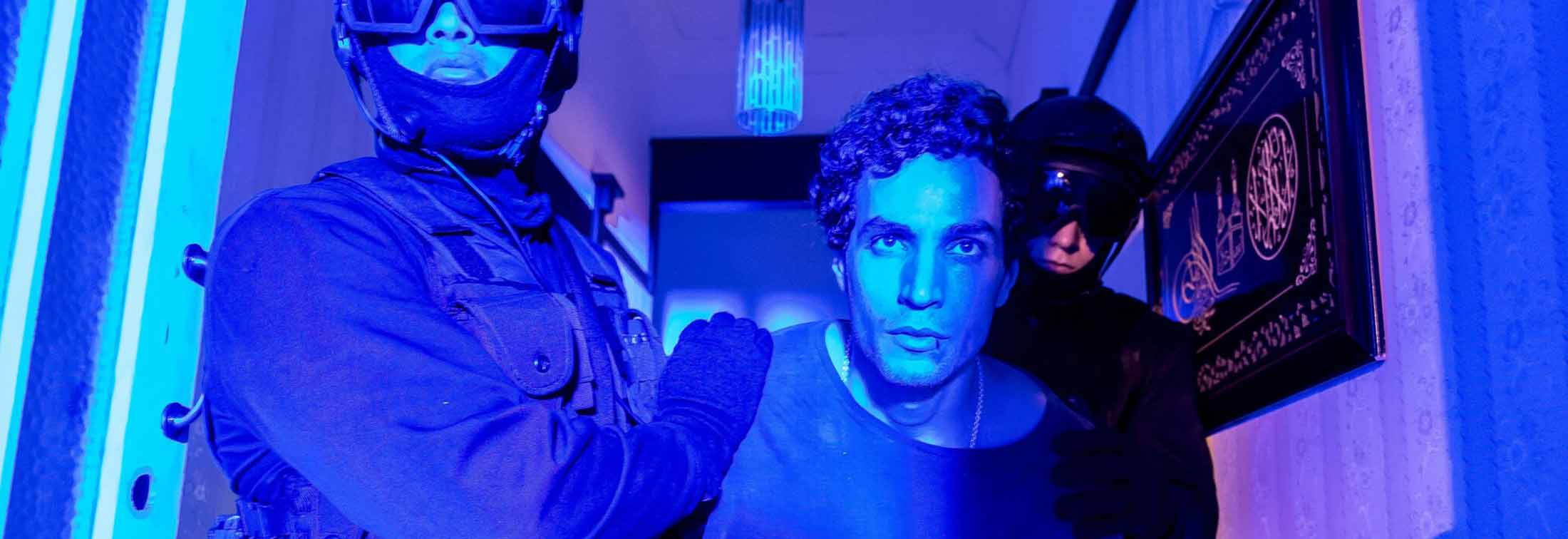

In the period of Australia’s enthusiastic participation in the War on Terror, Islam and Muslims have frequently been treated as public enemies, and hate speech against them has inexorably been normalised.
Australian racism did not, of course, begin in 2001. The country was settled by means of a genocidal frontier war, and commenced its independent existence with the exclusion of non-white migrants. White nationalism was practically Australia’s founding doctrine. But a succession of events in the first year of the millennium led to Islamophobia being practically enshrined as public policy.
Written and directed by Indian-born, Sydney-based Partho Sen-Gupta (‘Sunrise’), the urban mystery of ‘Slam’ takes an unwavering look at race and gender relations in modern day Western Sydney.
Clad in a red hijab and with the letters “S-L-A-M” written on her hand, Ameena (Danielle Horvat) is a politicised slam poet of Palestinian origins who endorses aggression to be met with aggression. Through her words, performed at the local community centre, she articulates the anguish, invisibility, and trauma Muslims carry in today’s exasperating political climate punctuated by Islamphobia. A standout aspect of ‘Slam’ is the poetry - the words of late activist poet Candy Royalle are heard in the opening scene. The film allows us to see how slam poets of non-white racial backgrounds harness their passion for the spoken word, allowing them to grieve openly and to interrogate the micro- and macro-aggressions they encounter on a daily basis.
'SLAM' TRAILER
When Ameena goes missing, the police and the hyperventilating media suspect that she has travelled overseas to fight with ISIS. Her brother, Ricky (Adam Barkri, ‘Omar’), who is more accustomed to spending time with his pregnant Anglo wife, his two children and the popular café he owns, goes looking for her. Ricky was born as Tariq, but drifted away from his Arab origins. We watch as he struggles to balance his day-to-day life with the pain of his Arab family, and grapple with hostility from strangers on social media, friends of Ameena (he’s still a “wog”, he’s reminded) and his Anglo friends, one of whom asks him: “You really think you are an Aussie?”
Joanne (the always excellent Rachael Blake, ‘Lantana’) is the police officer who is assigned to go looking for Ameena. She has her own internal conflicts, including an aggressive ex-husband, and a son lost to the war in the Middle East.
The film allows us to see how slam poets of non-white racial backgrounds harness their passion for spoken word poetry, allowing them to grieve openly and to interrogate the micro- and macro-aggressions they encounter on a daily basis.
The polarised experiences and prejudices of these two characters cause them to clash while Joanne and Ricky attempt to solve the mystery of the young woman’s disappearance. Islamophobia is not about fear that can be easily rectified by having “Muslim friends,” as Scott Morrison repeatedly claimed during his interview with Waleed Aly last year. As ‘Slam’ illustrates, the problem lies deeper. It thrives through an insidious ignorance of the ways that a racial logic construes Islam and Muslims as a group inherently separate from, and incompatible with, the shared project of Australian belonging.
Over the film’s tight running time, characterisation and storyline unspool at an unhurried pace which, when coupled with some darkly elegant cinematography, expert utilisation of colour and excellent performances by the two leads, ensure ‘Slam’ is never less than compelling and through-provoking viewing.